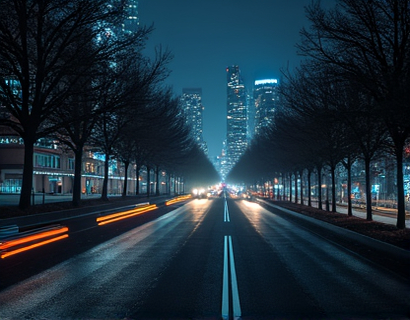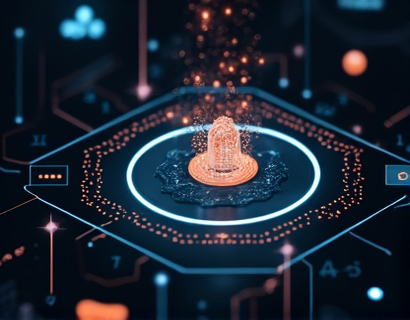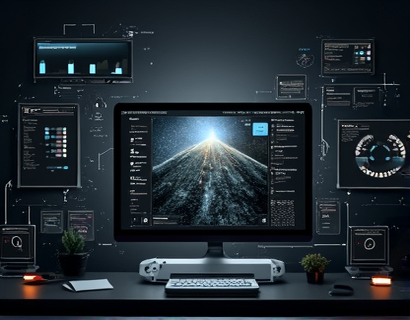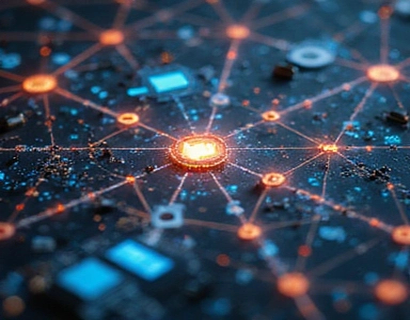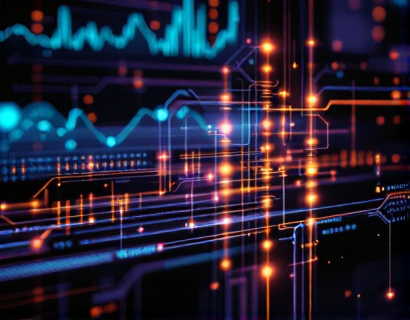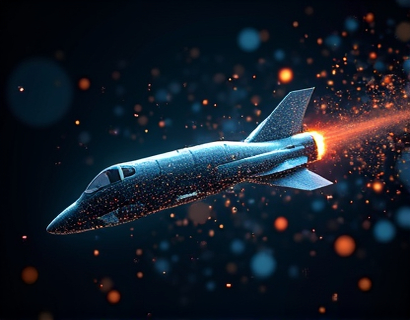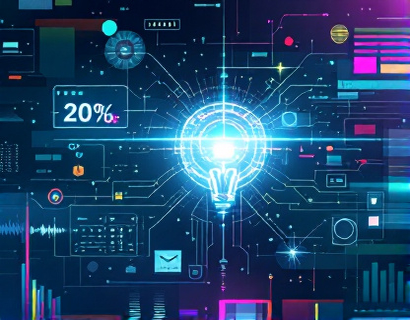Crypto and AI: Pioneering the Future of Digital Transformation
The intersection of cryptocurrency and artificial intelligence (AI) is revolutionizing the digital landscape, offering unprecedented opportunities for tech innovators and early adopters. This convergence is not just a trend but a fundamental shift in how we perceive and interact with digital technologies. As we delve into this topic, it's essential to understand the individual roles of cryptocurrency and AI, and how their integration is driving the next wave of technological advancements.
Understanding Cryptocurrency
Cryptocurrency, often referred to as digital or virtual currency, uses cryptography for security and operates on a decentralized network, typically a blockchain. The most well-known cryptocurrency is Bitcoin, but there are thousands of others, each with unique features and use cases. Cryptocurrencies offer several advantages over traditional fiat currencies, including lower transaction costs, faster processing times, and enhanced security and privacy.
The underlying technology, blockchain, is a distributed ledger that records transactions across multiple computers in such a way that the registered transactions cannot be altered retroactively. This transparency and immutability make blockchain a cornerstone for various applications beyond currency, such as supply chain management, voting systems, and identity verification.
The Role of Artificial Intelligence
Artificial intelligence, on the other hand, encompasses a range of technologies that enable machines to perform tasks that traditionally required human intelligence. These tasks include learning from experience, understanding natural language, recognizing patterns, and making decisions. AI is powered by machine learning algorithms, deep learning, and natural language processing, among other techniques.
AI has already transformed industries such as healthcare, finance, and transportation. In healthcare, AI algorithms can analyze medical images with high accuracy, predict patient outcomes, and personalize treatment plans. In finance, AI powers algorithmic trading, fraud detection, and customer service through chatbots. In transportation, AI drives autonomous vehicles and optimizes logistics and supply chains.
Convergence of Cryptocurrency and AI
The combination of cryptocurrency and AI is creating a new paradigm in digital transformation. This synergy leverages the strengths of both technologies to solve complex problems and create innovative solutions. Here are some key areas where this convergence is making a significant impact:
Decentralized Finance (DeFi)
Decentralized Finance, or DeFi, is a movement that aims to recreate traditional financial systems on blockchain networks. AI enhances DeFi by providing sophisticated algorithms for risk management, portfolio optimization, and automated trading. Smart contracts, which are self-executing contracts with the terms directly written into code, can be enhanced with AI to make more informed and dynamic decisions.
For instance, AI-driven predictive models can analyze market trends and adjust positions in real-time, reducing the risk of human error and increasing profitability. DeFi platforms are also exploring AI for credit scoring, where traditional data sources are supplemented with alternative data to provide more accurate and inclusive credit assessments.
Tokenized Assets and NFTs
Tokenization involves representing real-world assets, such as real estate, art, and equity, as digital tokens on a blockchain. AI plays a crucial role in this process by providing valuation models, market analysis, and fraud detection. Non-Fungible Tokens (NFTs), a specific type of token, are used to represent unique digital assets, such as artwork, collectibles, and virtual real estate.
AI can enhance NFTs by creating unique and dynamic digital art, generating personalized experiences for users, and predicting market trends for NFT collections. For example, AI-generated art has gained significant attention and value, with some pieces selling for millions of dollars. AI algorithms can create art that is both original and appealing, expanding the creative possibilities in the digital space.
Enhanced Security and Privacy
Security and privacy are paramount in the digital world, and the combination of cryptocurrency and AI offers robust solutions. AI-powered security systems can detect and mitigate threats in real-time, analyzing patterns and anomalies to prevent cyberattacks. Blockchain's inherent security features, combined with AI's advanced analytics, create a formidable defense against fraud and data breaches.
Privacy is another area where this convergence shines. Zero-knowledge proofs, an AI technique, allow users to prove the validity of a statement without revealing the underlying information. This technology, when integrated with blockchain, ensures that transactions can be verified without exposing sensitive data, enhancing user privacy and compliance with regulations like GDPR.
Smart Cities and IoT
Smart cities and the Internet of Things (IoT) are becoming increasingly prevalent, and the integration of cryptocurrency and AI can optimize these systems. AI can manage and analyze the vast amounts of data generated by IoT devices, improving efficiency and resource allocation. For example, AI can optimize traffic flow, energy consumption, and waste management in smart cities.
Cryptocurrency can facilitate transactions within these systems, ensuring secure and transparent exchanges of value. Tokenized incentives can encourage participation and reward users for contributing to the network, such as providing data or maintaining nodes. This creates a more decentralized and resilient infrastructure, reducing reliance on centralized authorities.
Supply Chain and Logistics
Supply chain management is another sector benefiting from the convergence of cryptocurrency and AI. AI can optimize supply chains by predicting demand, managing inventory, and reducing costs. Blockchain ensures transparency and traceability, allowing all parties to track the movement of goods in real-time.
Cryptocurrency can streamline payments within the supply chain, reducing the need for intermediaries and lowering transaction costs. Smart contracts can automate payments based on predefined conditions, ensuring timely and accurate transactions. This combination enhances efficiency, reduces fraud, and builds trust among supply chain participants.
Challenges and Considerations
While the potential of cryptocurrency and AI is vast, there are several challenges and considerations to address. Regulatory uncertainty remains a significant hurdle, as governments worldwide are still grappling with how to regulate these emerging technologies. Compliance with existing laws and the development of new regulations are crucial to ensure the sustainable growth of DeFi, NFTs, and other applications.
Technical challenges, such as scalability and interoperability, also need to be addressed. Blockchain networks must handle increasing transaction volumes without compromising speed or security. AI models require substantial computational resources and data, which can be costly and resource-intensive. Developing more efficient algorithms and leveraging edge computing can help mitigate these issues.
Ethical considerations are equally important. The use of AI in decision-making processes must be transparent and fair, avoiding biases that can lead to discriminatory outcomes. Ensuring user privacy and data security is paramount, especially in the context of sensitive financial transactions and personal data.
Opportunities for Tech Innovators and Early Adopters
For tech innovators and early adopters, the convergence of cryptocurrency and AI presents numerous opportunities. Here are some key areas to explore:
Developing DeFi Platforms
Creating decentralized finance platforms that leverage AI for enhanced functionality can attract a growing user base. Innovators can focus on developing user-friendly interfaces, robust security measures, and innovative financial products. Collaborating with blockchain developers and financial experts can help navigate the complex regulatory landscape.
Creating AI-Driven NFT Marketplaces
Building NFT marketplaces that use AI to generate unique and valuable digital assets can capitalize on the burgeoning NFT market. Innovators can explore AI-generated art, personalized digital collectibles, and virtual real estate. Ensuring the authenticity and scarcity of NFTs through blockchain technology is essential for building trust and value.
Enhancing IoT and Smart City Solutions
Integrating AI and cryptocurrency into IoT and smart city solutions can lead to more efficient and sustainable urban environments. Innovators can develop platforms that use AI to manage and optimize IoT devices, with transactions facilitated by cryptocurrency. Tokenized incentives can encourage community participation and data contribution, fostering a more collaborative and resilient infrastructure.
Advancing Supply Chain Technologies
Developing blockchain-based supply chain solutions that incorporate AI for predictive analytics and automation can revolutionize logistics and manufacturing. Innovators can create platforms that provide end-to-end visibility, secure transactions, and optimized processes. Partnering with industry leaders can help scale these solutions and drive widespread adoption.
Exploring AI-Enhanced Security Solutions
Creating AI-powered security solutions that integrate with blockchain can offer unparalleled protection against cyber threats. Innovators can develop systems that use machine learning to detect and respond to threats in real-time, ensuring the integrity and privacy of digital assets. Collaborating with cybersecurity experts can enhance the effectiveness and reliability of these solutions.
Conclusion
The convergence of cryptocurrency and AI is reshaping the digital landscape, offering transformative opportunities for tech innovators and early adopters. By leveraging the strengths of both technologies, we can create more secure, efficient, and innovative solutions that drive the next wave of digital transformation. As this field continues to evolve, staying informed and adaptable will be key to success in this exciting and rapidly changing domain.



